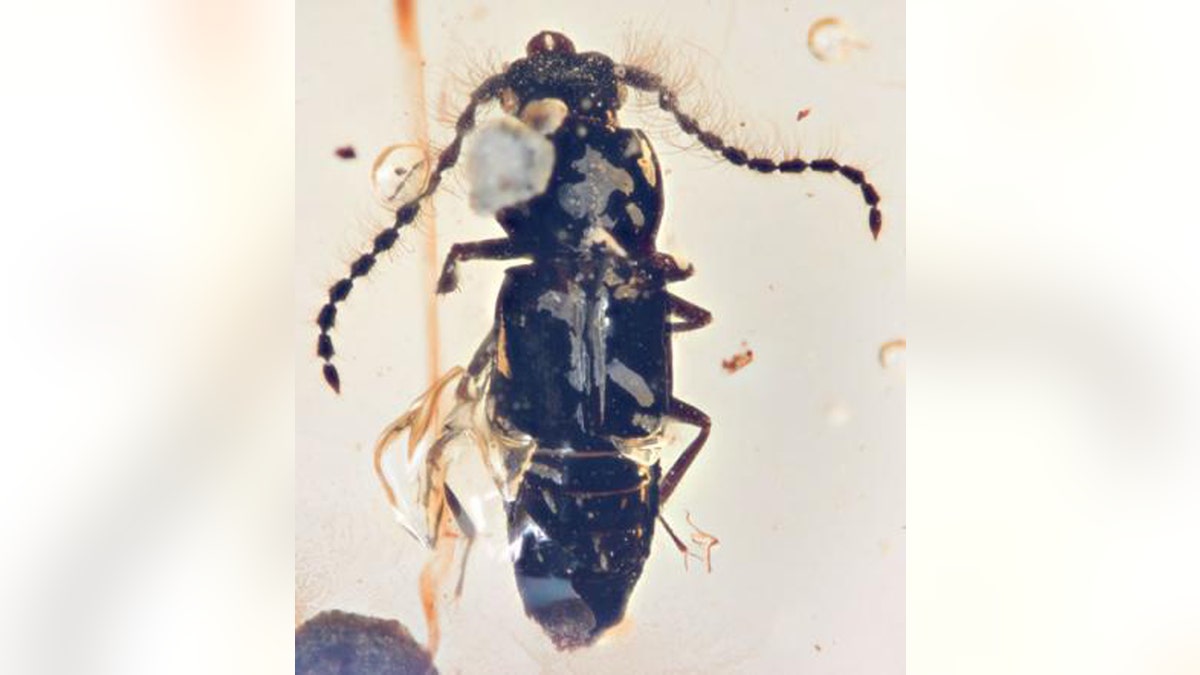
The fossil beetle, Propiestus archaicus, preserved in amber. (Credit: Field Museum, Shuhei Yamamoto)
A 99-million-year-old beetle has been found, trapped in amber, stunning scientists.
The new beetle, known as Propiestus archaicus, was found in Hukawng Valley in the northern part Myanmar, near China's southern border. P. archaicus is a distant relative of today's rove beetles, found in South America and the southern part of Arizona, revealing that the continents shifted rapidly millions of years ago to what we now see today.
"This is a very rare find," Shuhei Yamamoto said, a Field Museum researcher and lead author of a paper in the Journal of Systematic Palaeontology, said in a statement.
DINOSAURS MAY HAVE HAD BIRD-LIKE 'SUPERLUNGS'
Thanks to the beetle, the researchers now believe that Myanmar was part of Gondwanaland, a massive continent that was formed after Pangea broke up.
During the Late Cretaceous period, massive dinosaurs walked the Earth, but it's the diminutive beetle, which measures 0.1 inches long, that surprised the researchers.
Yamamoto noted the beetles were walking underneath rotting trees and their antennae helped them navigate the tough terrain.
"The antennae probably had a highly sensitive ability as a sensory organ," Yamamoto said. "There wouldn't have been a lot of space available in the beetle's habitat, so it was important to be able to detect everything."
Yamamoto added that the finding "probably shows some amazing connections between [the] Southern Hemisphere and Myanmar."
85-MILLION-YEAR OLD SEA MONSTER FOUND IN KANSAS
"This fossil helps us understand life in the Mesozoic era," he concluded. "We need to think about everything from that time, both big and small."
Follow Chris Ciaccia on Twitter @Chris_Ciaccia




















